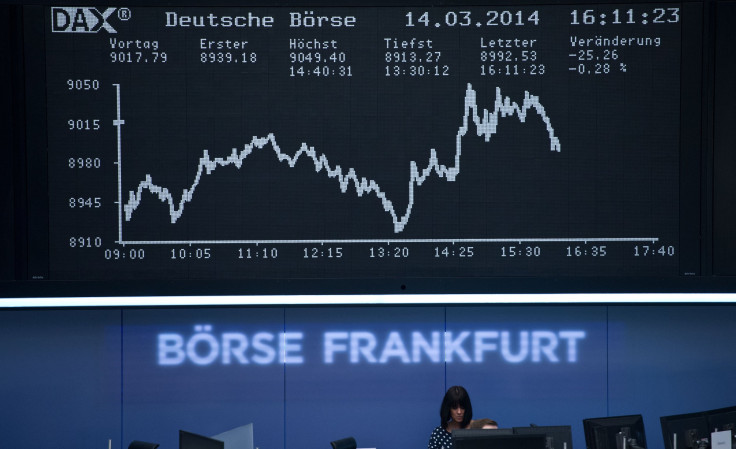German Stocks Outperform Global Peers As Weak Euro Boosts Growth

German stocks, helped by a strong economy, outperformed most of their global counterparts in 2015. Despite witnessing widespread volatility through the year, the country’s benchmark DAX Index was up 9.6 percent this year, and is expected to extend gains through 2016.
By comparison, the pan-European Stoxx 600 index rose 8 percent in 2015, while France’s CAC 40 was last trading up 9 percent over the past year. The DAX Index also outperformed most of its Asian counterparts, including China’s Shanghai Composite and Japan Nikkei 225, and America’s Dow Jones Industrial Average, which is down 1.2 percent this year.
“We could see another good year for the DAX in 2016,” Michael Woischneck, an equities fund manager at Lampe Asset Management in Dusseldorf, Germany, told Bloomberg. “Oil and the euro being where they are should support growth.”
Germany’s economy is heavily export-oriented. In the spring of 2015, when exporters received a massive boost from the European Central Bank’s quantitative easing program — which weakened the euro and made exports cheaper — the DAX surged as much as 26 percent.
However, as China’s slowing growth cooled demand for German exports in emerging markets, and as Volkswagen’s emissions scandal hurt investor confidence in the German car industry, the benchmark index plummeted in September. By October end, the Volkswagen scandal alone had wiped out nearly $370 million from the value of German companies.
After hitting a low of nearly 9,400 in September, though, the DAX has recouped about half of its losses. According to projections compiled by Bloomberg, the index is expected to rally 9.8 percent to 11,792 in 2016, as the German economy continues to outpace its eurozone neighbors.
German exports are also forecast to rise to record levels in 2016, as a weak euro helps the economy tide over difficulties in China and other emerging markets.
“We are confident on the German index,” Herbert Perus, head of equities at Raiffeisen Capital Management in Vienna, told Bloomberg. “Globally, people are thinking again about investing into Europe. The first step is to take a stake in the German market because it’s very liquid and has a lot of world leaders in various different markets."
© Copyright IBTimes 2024. All rights reserved.






















